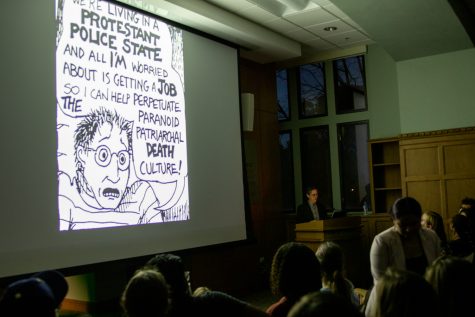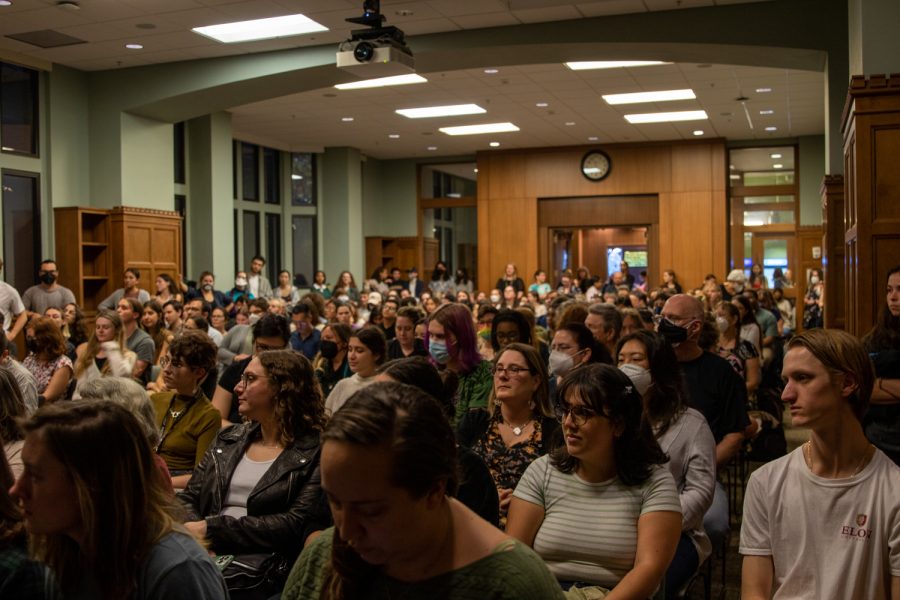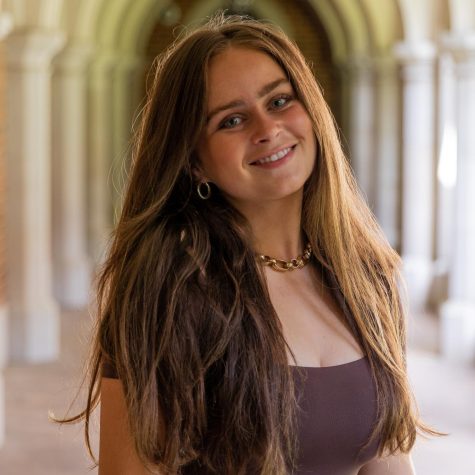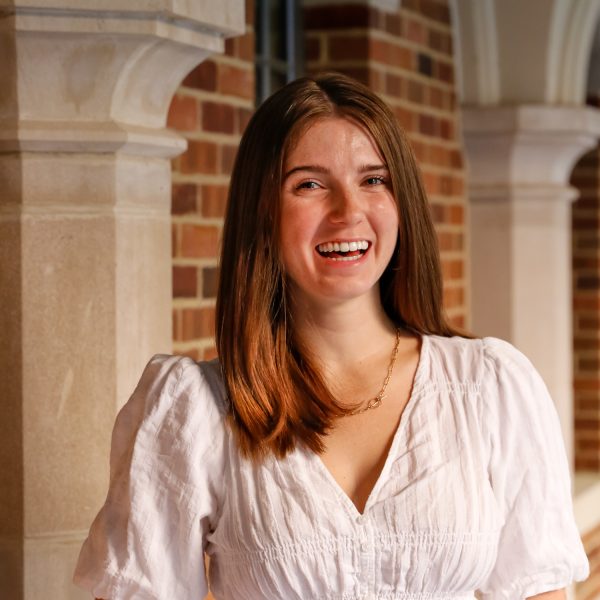The Margaret Cuninggim Women’s Center hosted One to Watch Out For: An Afternoon with Alison Bechdel on Nov. 7, the 2022 Cuninggim Lecture on Women in Culture and Society. The event was co-sponsored by the Department of Gender and Sexuality Studies, the Jean and Alexander Heard Libraries and the Office of Lesbian, Gay, Bisexual, Transgender, Queer, and Intersex Life.
Bechdel is a cartoonist and author, known for her long-running comic strip “Dykes to Watch out For.” “Fun Home,” Bechdel’s 2004 memoir about her father, received the Time Best Book of the Year award and was adapted into a Broadway musical that won five Tony Awards, including Best Musical. Alison has also been the recipient of the 2012 Guggenheim Fellowship award and the 2014 MacArthur “Genius” Grant.
“Alison Bechdel being here is a huge deal,” junior and Women’s Center ambassador Omotayo Fasan said. “As a lesbian and as someone who works to promote feminism on campus, I was excited to be part of an event that would represent my community and bring her work to an audience.”

Most attendees were familiar with Bechdel’s work and were excited for the opportunity to meet her.
“I knew of Alison Bechdel’s work because of the musical ‘Fun Home’ and also the Bechdel Test,” said Maddie Coffey, a first-year graduate student in the Owen School of Business. “I feel like taking advantage of university resources while you’re here is important.”
Bechdel began her presentation by describing the arc of her career and her experience of coming out in the 1980s. She described the impact of other feminist writers, like Adrienne Rich, during her time in college.
“Adrienne Rich was not required reading for us at that time, she was not on the syllabus, she was totally someone we were reading out of an act of rebellion against our assigned reading that was very out of touch and cut off from reality” said Bechdel. “We were reading Rich because she was talking about something that felt very real, and very exciting.”
Bechdel explained that, in 1983, she began writing and drawing what would become a centerpiece in various gay and lesbian publications across the United States.
“When I started drawing ‘Dykes To Watch Out For,’ my mission was very explicit: I wanted to take up Rich’s challenge to name the unnamed, to depict the undepicted,” said Bechdel. “For so long our lives had to be kept invisible. I was determined to reverse that, to be very honest and open, to tell the truth about our lives.”
Bechdel said she stopped drawing the strip in 2008 after 25 years because she “no longer felt it was necessary.” Bechdel began working on a graphic memoir titled “Fun Home,” which was about Bechdel’s father’s suicide following her coming out in her junior year of college and would become the first of her three books.
“I felt like I really needed to tell this story, to write it, that writing about it would not just be helpful for me, but maybe other people too,” Bechdel said.
Bechdel also spoke about her second release “Are You My Mother?” a memoir about Bechdel’s relationship with her mother. In writing the memoir, Bechdel explained the emotional impacts of making her relationship with her mother public.
“This was a really critical process [that resulted in] the deepest kind of political act–the act of self-liberation,” Bechdel said.
Bechdel ended the talk by discussing her latest book release, “The Secret to Superhuman Strength,” which was published in 2021 and focuses on her quest for transcendence through physical exercise.
“This book feels to me like a natural progression of my investigation into my sole subject: myself,” Bechdel said. “This book is about my effort to get to that next stage, the stage of forgetting the self and being with others.”
According to Bechdel, her previous books focused on better understanding herself and what it meant to be an individual. Her third and newest project, she explained, centers the understanding of self “as something that can be let go of.”
Bechdel closed the lecture with a Q&A session, addressing questions from audience members regarding the presence of neurodivergence in her work and the healing power of writing.








Melissa • Nov 9, 2022 at 7:58 pm CST
Wow. So amazing.